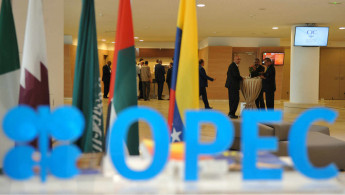Libya and Nigeria negate OPEC's cut in oil output
Global crude oil production rose to its highest point this year for the month of June, despite OPEC's November plans to cut output.
There were an additional 260,000 barrels a day (BPD) produced in June compared to May, a survey of oil-trading analysts found, with the biggest boosts found in Libya and Nigeria.
Libya is currently pumping around a million BPD, a four-year high for the country – the last time it published such figures was in June 2013, when it produced 1.13 million.
The oil-rich nation was only producing around 690,000 bpd at the beginning of the year, but a recent battle over the country's oil crescent returned stability and security to the country's oil terminals.
Libya's National Oil Corporation reported in May it would "raise production to 1.32 million barrels per day (bpd) by the end of 2017, at a cost of $550 million".
OPEC announced a six-month cut in production in November to tackle the global "oil glut" – an excessive quantity of oil in storage. This glut caused supply to exceed demand, causing an already depreciating price tag to reduce further.
Oil prices continued to slump over 2017 however, leading to a seven-month low on June 21.
The United States, Libya and Nigeria have continued to pump oil at accelerated rates to effectively cancel out any drop in global production.
Despite the lack of hope in the programme, the Saudi oil minister said in May that the cuts to production would extend from its initial six month period to the entirety of 2017.




 Follow the Middle East's top stories in English at The New Arab on Google News
Follow the Middle East's top stories in English at The New Arab on Google News
![The UAE is widely suspected of arming the RSF militia [Getty]](/sites/default/files/styles/image_330x185/public/2024-11/GettyImages-472529908.jpg?h=69f2b9d0&itok=Yauw3YTG)
![Netanyahu furiously denounced the ICC [Getty]](/sites/default/files/styles/image_330x185/public/2024-11/GettyImages-2169352575.jpg?h=199d8c1f&itok=-vRiruf5)
![Both Hamas and the Palestinian Authority welcomed the ICC arrest warrants [Getty]](/sites/default/files/styles/image_330x185/public/2024-11/GettyImages-2178351173.jpg?h=199d8c1f&itok=TV858iVg)